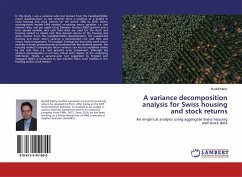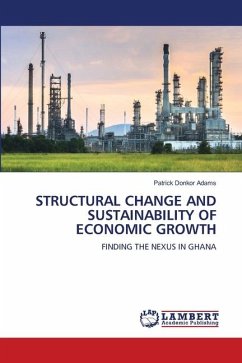
Structural decomposition of employment
A study of forty countries between 1995 and 2009
Versandkostenfrei!
Versandfertig in 6-10 Tagen
24,99 €
inkl. MwSt.

PAYBACK Punkte
12 °P sammeln!
The issue of unemployment has been a recurring theme in the history of economic thought, motivating theoretical debates on the definition of the term, with explanations of the phenomenon and the role of government reflecting different views of economic science. Employment variations empirically follow fluctuations in economic activity (according to the assumptions of Okun's Law), and theoretically, we seek to understand whether this is the result of mechanisms inherent to capitalist development or external interference in the functioning of markets, or whether it stems from structural conditio...
The issue of unemployment has been a recurring theme in the history of economic thought, motivating theoretical debates on the definition of the term, with explanations of the phenomenon and the role of government reflecting different views of economic science. Employment variations empirically follow fluctuations in economic activity (according to the assumptions of Okun's Law), and theoretically, we seek to understand whether this is the result of mechanisms inherent to capitalist development or external interference in the functioning of markets, or whether it stems from structural conditions or individual attributes. The present study aims to calculate the structural decomposition of the variation in the number of jobs into effects of factor intensity, technology, proportion of final demand, and volume of final demand, estimating the causes of job variation and the role of structural change in employment growth (Structural Change Index-SCI) based on data from the World Input-Output Database (WIOD) for forty countries from 1995 to 2009.












